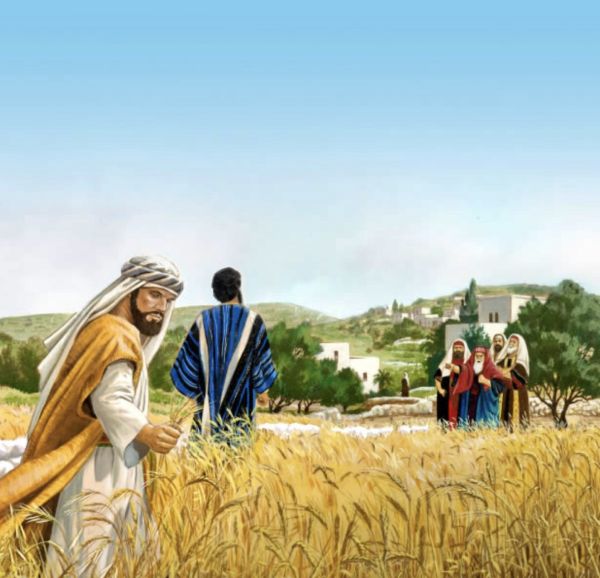The Pharisees ask Jesus why his disciples do what is not permitted by the Law on the Sabbath [eating, out of hunger, the ears of corn in the fields].
Jesus, who came to give full fulfilment to the Law, emphasises its foundation: do not demolish or transgress the Word, but observe it by loving.
Love is the true fulfilment of the Law of the Lord, which is perfect and refreshes the soul.
Francis understood this well by living and teaching his fraternity to do the same.
The Sources provide, through various pieces, precious examples of life. In the Letter to the Rulers of Peoples:
"I beseech you [...] with all the reverence of which I am capable, not to forget the Lord, absorbed as you are by the cares and cares of this world, and not to deviate from his commandments, for all who forget the Lord and deviate from his commandments are cursed and will be forgotten by him" (FF 211).
At the same time, the Poverello, with that balance and elasticity that distinguished him, emphasised:
"And whenever necessity arises, let all the brothers, wherever they may be, be allowed to take all the food that men can eat, just as the Lord says of David, who ate the loaves of the offering that were not allowed to be eaten except by priests [...] Similarly, in times of manifest necessity, let all the brothers provide for their necessities as the Lord will give them grace, since necessity has no law" (FF 33).
In support of what has been said, we quote a passage taken from the Perugina Legend.
Francis, faced with a friar of profound spirituality, perished and infirm, does something unusual for the mentality of the time.
"Francis said to himself:
"If this brother would eat some ripe grapes early in the morning, I think he would benefit from it".
One day he got up at dawn and secretly called that friar, led him to the vineyard near that church and, having chosen a vine full of beautiful, inviting grapes, sat down under it with his brother and began to eat the grapes, so that the sick man would not be ashamed to pick them himself.
While he was snacking, the friar praised the Lord God.
And as long as he lived, he often reminded his brothers, with devotion and weeping with tenderness, of the Holy Father's affectionate gesture towards him" (FF 1549)
Clare herself, in the Rule, addressed to the sisters, warns them:
"Let them always be solicitous to preserve reciprocally the unity of mutual charity, which is the bond of perfection" (FF 2810).
Love was the Rule of the brothers and the Poor Ladies of San Damiano: "[...] and so, carrying the yoke of mutual charity, with ease we shall fulfil the law of Christ. Amen." (FF 2918 - Letter to Ermentrude of Bruges).
«But if you had known what it means: 'Mercy I want, and not sacrifice' [Hos 6:6], you would not have condemned [people] without fault» (Mt 12:7)
Friday of the 15th wk. in O.T. (Mt 12,1-8)












